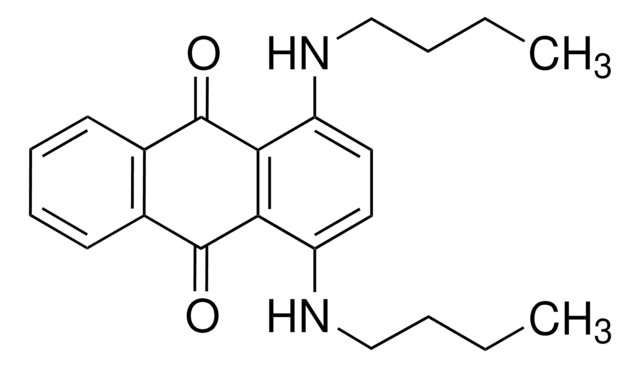1.01716
Barium chloride
99.995 Suprapur®
Synonym(s):
Barium chloride, Barium dichloride
About This Item
Recommended Products
grade
for inorganic trace analysis
Quality Level
Assay
99.995%
form
solid
potency
118 mg/kg LD50, oral (Rat)
pH
5-8 (20 °C, 50 g/L in H2O)
bp
1560 °C/1013 hPa
mp
963 °C
density
3.9 g/cm3 at 20 °C
bulk density
1350 kg/m3
storage temp.
2-30°C
SMILES string
[Ba+2].[Cl-].[Cl-]
InChI
1S/Ba.2ClH/h;2*1H/q+2;;/p-2
InChI key
WDIHJSXYQDMJHN-UHFFFAOYSA-L
Related Categories
Application
- Structural Characterization of Sulfated Polysaccharide Isolated From Red Algae (Gelidium crinale) and Antioxidant and Anti-Inflammatory Effects in Macrophage Cells.: This research involves the use of barium chloride in the structural characterization of a sulfated polysaccharide from red algae. The study explores its antioxidant and anti-inflammatory properties, providing insights into its potential applications in biomedical and pharmaceutical fields (Pei et al., 2021).
Analysis Note
Assay (complexometric): ≥ 99.5 %
Al (Aluminium): ≤ 0.05 ppm
Ca (Calcium): ≤ 2.00 ppm
Cd (Cadmium): ≤ 0.005 ppm
Co (Cobalt): ≤ 0.005 ppm
Cr (Chromium): ≤ 0.010 ppm
Cu (Copper): ≤ 0.005 ppm
Eu (Europium): ≤ 0.010 ppm
Fe (Iron): ≤ 0.02 ppm
K (Potassium): ≤ 5.0 ppm
La (Lanthanum): ≤ 0.010 ppm
Li (Lithium): ≤ 1.0 ppm
Mg (Magnesium): ≤ 1.00 ppm
Mn (Manganese): ≤ 0.010 ppm
Na (Sodium): ≤ 5 ppm
Ni (Nickel): ≤ 0.005 ppm
Pb (Lead): ≤ 0.005 ppm
Rb (Rubidium): ≤ 5.0 ppm
Sc (Scandium): ≤ 0.010 ppm
Sm (Samarium): ≤ 0.010 ppm
Sr (Strontium): ≤ 10.00 ppm
Tl (Thallium): ≤ 0.010 ppm
Y (Yttrium): ≤ 0.010 ppm
Yb (Ytterbium): ≤ 0.010 ppm
Zn (Zinc): ≤ 0.005 ppm
Legal Information
Signal Word
Danger
Hazard Statements
Precautionary Statements
Hazard Classifications
Acute Tox. 3 Oral - Acute Tox. 4 Inhalation - Eye Irrit. 2
Storage Class Code
6.1D - Non-combustible, acute toxic Cat.3 / toxic hazardous materials or hazardous materials causing chronic effects
WGK
WGK 1
Flash Point(F)
Not applicable
Flash Point(C)
Not applicable
Certificates of Analysis (COA)
Search for Certificates of Analysis (COA) by entering the products Lot/Batch Number. Lot and Batch Numbers can be found on a product’s label following the words ‘Lot’ or ‘Batch’.
Already Own This Product?
Find documentation for the products that you have recently purchased in the Document Library.
Customers Also Viewed
Our team of scientists has experience in all areas of research including Life Science, Material Science, Chemical Synthesis, Chromatography, Analytical and many others.
Contact Technical Service












